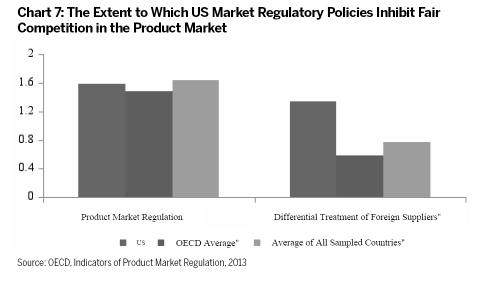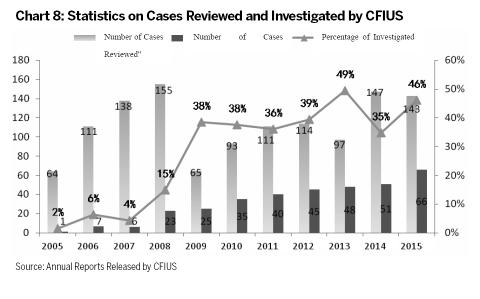The facts and China's position on China-US trade friction


The US, by way of legislation, sets strict requirements on its government departments to "buy American" and imposes discriminatory terms on purchasing foreign products. For example, the Buy American Act stipulates that US federal agencies can only acquire manufactured products made in America and unmanufactured articles that have been mined or produced in America33. According to the Code of Laws of the United States of America, an application for a public transport project receiving federal or state funding can be granted only if the steel, iron and manufactured goods used in the project are produced in the US34. According to the Agriculture, Rural Development, Food and Drug Administration, and Related Agencies Appropriations Act, none of the funds made available by this Act may be used to procure raw or processed poultry products imported into the US from China for use in the school lunch program, the Child and Adult Care Food Program, the Summer Food Service Program for Children or the school breakfast program.35 The National Defense Authorization Act prohibits the federal government from procuring telecommunications equipment and services provided by Chinese companies on the grounds of national security.36
2. Abuse of "National Security Review" as a way to obstruct the normal investment activities of Chinese companies in the US
The US is the first in the world to conduct security reviews on foreign investment. In 1975, the Committee on Foreign Investment in the United States (CFIUS) was established for the specific purpose of monitoring the impact of foreign investment in the US. In 1988, the Exon-Florio Amendment revised the 1950 Defense Production Act by mandating the US President and people with the authority to review foreign takeovers. The Foreign Investment and National Security Act of 2007 expanded CFIUS and broadened its scope of review37. The legislation process in the US over the past 50 years shows that the US security review of foreign investment has mainly been characterized by tighter laws, regulations and policies, expanded regulatory teams and scope of reviews, and more recently, intensified screening and restrictions vis-à-vis China.
In practice, the US "national security review" is often based on flimsy evidence and is becoming increasingly stringent. According to CFIUS annual reports to Congress38, the Committee reviewed 468 foreign investment transactions from 2005 to 2008, only 37 of which (8 percent) entered the stage of investigation. However, since the Department of the Treasury issued the Regulations Pertaining to Mergers, Acquisitions, and Takeovers by Foreign Persons39 in 2008, among the 770 cases reviewed between 2009 and 2015, 310 cases-40 percent of the total-passed on to the stage of investigation, which represents a noticeably sharp rise. In particular, the latest data released in 2015 shows this percentage climbing to an even higher level of 46 percent (Chart 8).

































